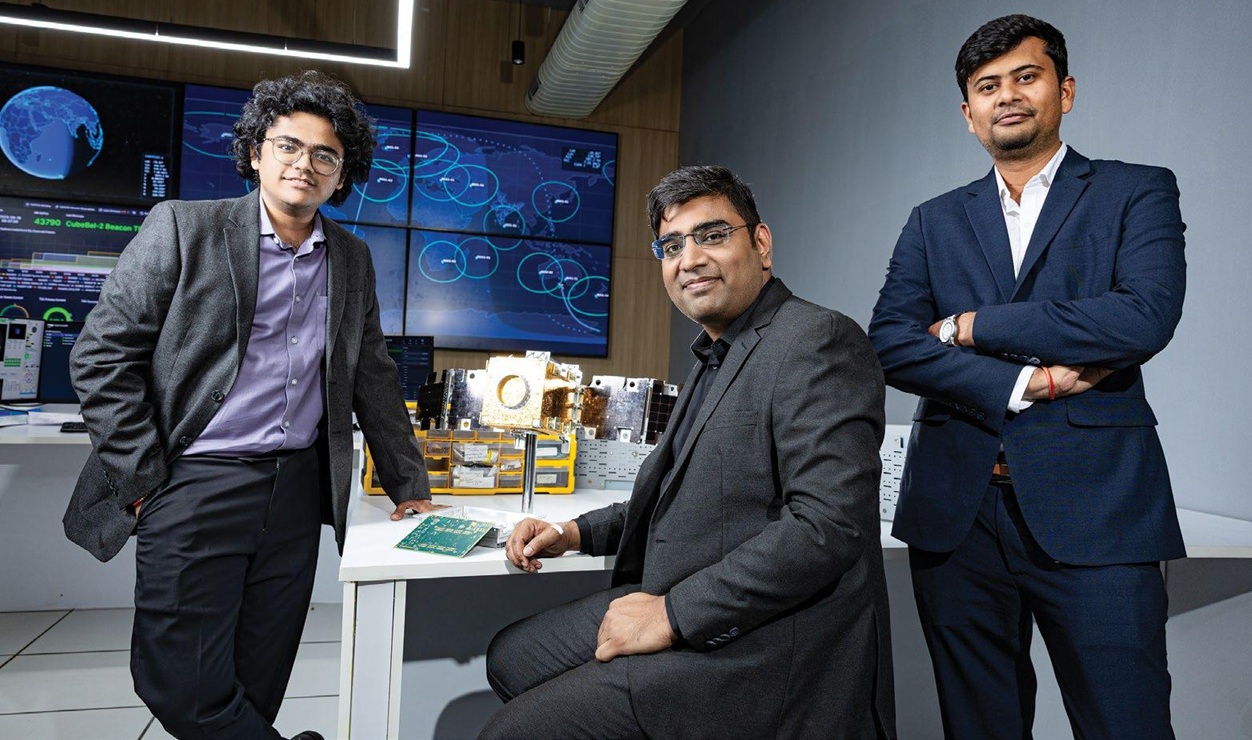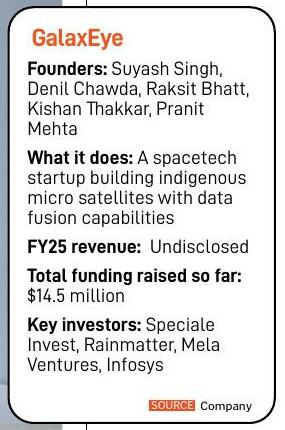Prøve GULL - Gratis
GalaxEye in The Sky
Forbes India
|October 31, 2025
The spacetech startup is building a satellite to capture high-resolution, all-weather images of Earth, key to sectors like defence and agriculture

In a lab in Bengaluru, a group of engineers at GalaxEye is building Mission Drishti—a satellite designed to change how the world sees Earth. Slated for launch early next year, Drishti will be the, “...the biggest satellite launched by a private company”, says Kishan Thakkar, vice president-engineering.
Weighing 160 kg, the satellite can capture the Earth’s surface using two sensors—Synthetic Aperture Radar (SAR) and multispectral optical imager (MSI)s—mounted on the same platform. While SAR sensors can penetrate clouds and smoke, optical sensors will be able to offer intuitive, colour-rich visuals. By fusing both simultaneously, this technology, also known as syncfused opto-SAR imaging, will allow the satellite to produce all-weather, day-and-night detailed images regardless of cloud cover or lighting conditions, something traditional optical satellites can’t achieve.
Formally incorporated in May 2021 after a year in stealth mode, GalaxEye was founded by five IIT-Madras graduates—Suyash Singh, chief executive officer; Rakshit Bhatt, vice president-product; Pranit Mehta, vice president-sales operations; and Denil Chawda, chief technology officer, along with Thakkar.
The group met when Singh was leading Avishkar Hyperloop, a 40-member team, which, in 2019, was the only Asian squad to reach the finals of the SpaceX Hyperloop Pod competition, hosted by Elon Musk.
Inspired by their Hyperloop work, they explored using electrical propulsion to launch satellites into space. “But we realised it would need massive infrastructure, such as a 40-kilometer launch tube at a steep angle, which was not feasible,” says Chawda.

Denne historien er fra October 31, 2025-utgaven av Forbes India.
Abonner på Magzter GOLD for å få tilgang til tusenvis av kuraterte premiumhistorier og over 9000 magasiner og aviser.
Allerede abonnent? Logg på
Listen
Translate
Change font size

